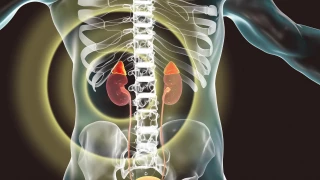
Screening and Tests During Pregnancy
- Screening and Tests During Pregnancy
- Why Testing Should Be Performed During Pregnancy?
- Tests and Times in Pregnancy
The dream of every pregnant woman is a healthy pregnancy process and holding her baby in her arms. These are the tests done to keep the health of the baby and mother under control and to understand whether there is a problem in the development of the baby. So, what are the screening and tests applied during pregnancy? What are the points to be considered? Maternal and infant health?
Why Testing Should Be Performed During Pregnancy?
It is a process that is constantly observed from the beginning of pregnancy. Family health centers, which are primary health care institutions, provide this service. Apart from that, you can get through this process easier than you hope with the help of maternity nurses or coaches. If you have limited financial means, it would be appropriate to choose family health centers. The main purpose of applying continuous screening tests and keeping this process under control is anomalies. Giving birth to a baby with anomaly is a discomfort that can be seen in women of all age groups. Humans have double chromosomes that belong to their genetic information. The normal one is the copy chromosome, the presence of 3 copies of them is a chromosome anomaly. The most common abnormality is “trisomy 21” known as down syndrome. Structural problems of the baby emerge with ultrasound imaging techniques. When there is any risk, solution methods are discussed with the family. It is the family that must make the critical decision. These tests should be done at the right time and it should be ensured that the correct result is given.
Tests and Times in Pregnancy
Dual screening test: It is a test that should be done between 11 and 14 months of pregnancy. If the test result is less than 1/250, it can be seen as a risk. It is reported by looking at the average level of PAPP-A and FB-HCG factors in the blood of the pregnant woman. It is a screening test with high reliability. A blood test showing the risk range for some chromosomal disorders, especially Down syndrome, is performed.
First three months screening test: The baby's arms, nose bone, brain and kidneys are checked. In other words, if there are abnormalities in the baby's body development, it is tried to be detected. The certificate of all these processes is certified on the computers and it determines whether the anomies are present in the baby. The rate of finding babies with Down syndrome is between 90 and 95%.
Combined dual screening test: In this test, in which nuchal thickness is measured, the risk is calculated without neglecting the maternal age and gestational age. In case of excessive nuchal translucency, pregnancy loss and chromosomal anomaly can be observed. This test is done between 11 and 14 weeks of pregnancy.
Triple screening test: It is done between 15 and 19 weeks of pregnancy. Again, it is evaluated and reported according to the population average.
Quadruple screening tests: It would be appropriate for those who missed the combined double test week to have this test done. This screening test is done at an appropriate time between 16 and 18 weeks of pregnancy.
Integrated screening tests: This test, which has a sensitivity of 93%, is performed between 16 and 20 weeks together with the quad screening test.
Sugar overload: With the effect of pregnancy hormones, women who do not have diabetes during pregnancy may develop gestational diabetes, called gestational diabetes. If measures are not taken for its treatment after the diagnosis is made, it can cause major problems during the intrauterine period and during the postpartum period. For this reason, between the 24th and 28th weeks, a 75 g sugar loading test is done. Another test is a 50 g sugar test, and as a result of the low result, a 100 g sugar loading test is performed. In addition, urinalysis, complete blood count and urine culture should be repeated occasionally during pregnancy. In pregnant women with Rh incompatibility, the indirect Coombs test should be repeated at 28 weeks and a blood incompatibility injection should be applied in pregnant women with Rh incompatibility.





